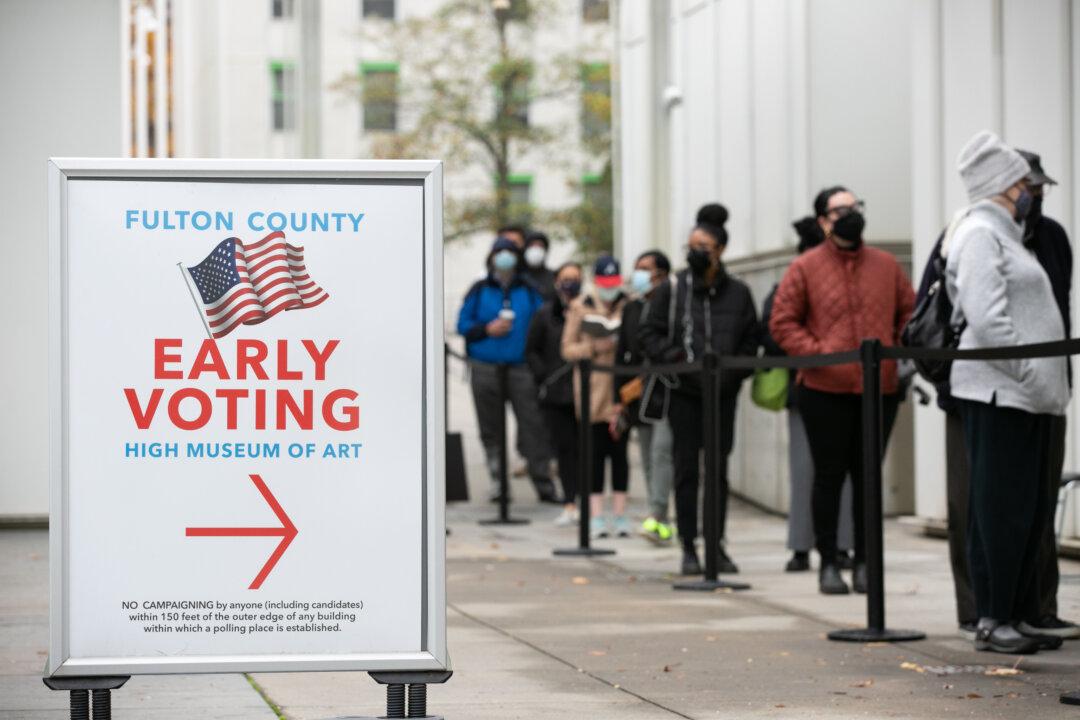A record number of Georgia residents have cast ballots during early voting, in the wake of last year’s adoption of election integrity measures that critics derided as “voter suppression” and President Joe Biden called a “blatant attack” on the Constitution and compared the law to a Jim Crow-era relic.
More than 710,000 people had voted early in Georgia’s primary election as of May 19, according to the secretary of state’s office, which is 149 percent higher than at the same point in 2020, when elections officials encouraged vote-by-mail and early voting to reduce crowding at polling stations amid the COVID-19 pandemic.





